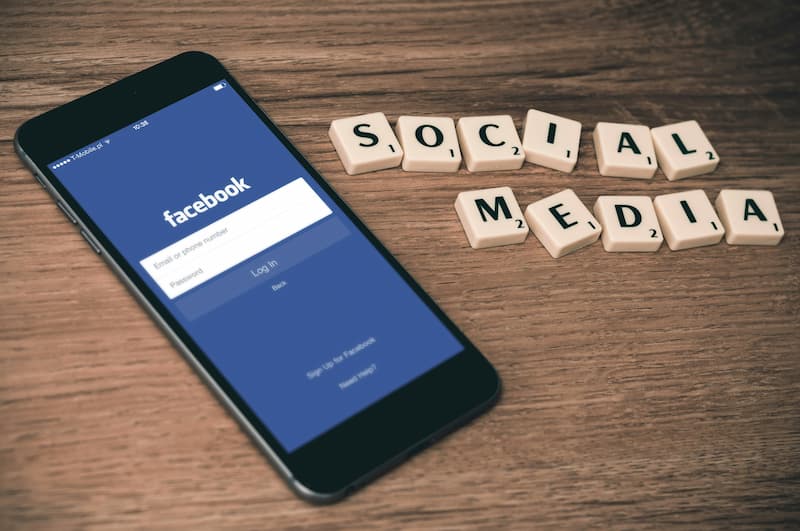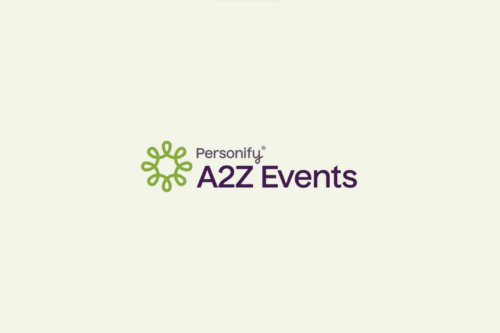Social media has become a crucial tool for event promotion. From creating buzz before the event to engaging attendees in real time and maintaining momentum post-event, social media channels and solid social media strategies offer numerous opportunities to maximize your event’s success. In this guide, we’ll explore the rise of social media event marketing and the most effective strategies, helping you plan, engage, and analyze your efforts to ensure a memorable event. This comprehensive approach will cover pre-event planning, real-time engagement, and post-event analysis to help you leverage social media to its fullest potential.
The Rise of Social Media in Event Marketing
The evolution of social media has transformed how we connect, communicate, and plan and market events. Social media platforms were originally primarily used for personal interactions. However, as these platforms grew in popularity and functionality, their business and event marketing potential became evident and indispensable.
In the early 2000s, platforms like MySpace and LinkedIn emerged, offering new ways to connect with audiences. By 2006, Facebook and Twitter had entered the scene, revolutionizing how information was shared. The introduction of Instagram in 2010 and Snapchat in 2011 further expanded social media’s visual storytelling capabilities.
As these platforms evolved, businesses and event organizers started recognizing their potential for reaching broader audiences. The ability to create engaging content, interact with followers in real time, and utilize data analytics to refine marketing strategies made social media an invaluable tool for event promotion. Today, platforms like Facebook, Instagram, Twitter, LinkedIn, and TikTok are integral to any comprehensive event marketing strategy.
Pre-Event Social Media Marketing
Effective social media event marketing starts long before the event itself. Here’s how to lay the groundwork for success:
Prioritize Your Social Media Channels
Selecting the right social media platforms is crucial. Different platforms attract different demographics and offer various engagement opportunities. For instance, LinkedIn is ideal for professional events, while Instagram and TikTok may be better for visually appealing, informal events. Analyze your target audience and choose the platforms where they are most active to maximize your reach.
Set Your Social Media Event Goals
Before posting, determine what you want to achieve with your social media efforts. Are you looking to increase ticket sales, boost event awareness, or engage with a larger audience? Establish clear goals and corresponding metrics to track your success. These goals should align with your overall event objectives.
Reference Successful Previous Events
If your event is annual or occurs at regular intervals, referencing successful previous events can build excitement and credibility. Share highlights, testimonials, and engagement metrics from past events to generate buzz and show potential attendees what they can look forward to. This strategy helps reinforce the value and success of your event.
Schedule Key Event Announcements and Deadlines on Social Media
Develop a detailed content calendar outlining what, when, and where you’ll post. This should include promotional posts, registration details, countdowns, behind-the-scenes content, and any other material relevant to your event. Strategically schedule key updates and milestones to build anticipation and generate buzz. Consistent and timely announcements keep your audience engaged and informed.
Use Event Hashtags
Craft a unique and memorable hashtag for your event. Encourage attendees, speakers, and partners to use it across their posts to increase visibility and engagement. Effective event hashtag strategies can significantly enhance your event’s social media footprint.
Leverage Influencers and Partners
Collaborate with influencers, industry experts and luminaries, and event partners to expand your reach. Their endorsement can lend credibility and attract a broader audience. Influencers can also help you promote your event and expand your reach on social media by sharing your event details with their followers.
Promote Early Bird Discounts
Offering early bird discounts can create urgency and encourage early registrations. Promote these discounts heavily on social media to boost ticket sales. Highlight these offers in your event marketing strategies to maximize early engagement.
Social Media for Events in Real-Time
The work doesn’t stop once your event begins. In fact, the event itself is a goldmine of marketing opportunities, live engagement, and source material for content creation for future promotions. Engaging with your audience in real-time is crucial to maximizing the event’s impact and ensuring a memorable experience for attendees. Here’s how to leverage these opportunities effectively.
Delight Attendees to Entice Social Media Sharing
Create interactive and share-worthy moments during the event. This can include live polls, photo booths, or special activities designed to encourage attendees to share their experiences on social media. The more engaging and unique the experience, the more likely attendees will post about it, enhancing your event’s visibility.
Use Social Media for Your Virtual Event Audience
Optimizing social media engagement is crucial for virtual events. To engage virtual attendees, use live streams, virtual networking sessions, and interactive Q&A sessions. Encourage participation by creating opportunities for them to interact with speakers and other attendees.
Live Streaming
Use platforms like Facebook Live, Instagram Live, or YouTube to stream key parts of your event. This allows those who couldn’t attend in person to participate virtually. Live streaming is an essential component of social media event promotion tips.
Provide QR Codes
QR codes have become a popular tool for streamlining and enhancing event experiences. By incorporating QR codes for events, you can streamline processes such as check-ins, provide instant access to event schedules, and enable easy sharing of social media handles and hashtags. Attendees can quickly scan QR codes to access exclusive content, participate in contests, or provide feedback, ensuring seamless audience engagement.
Social Media Takeovers
Allow influencers or key speakers to take over your social media accounts for a portion of the event. This can provide fresh perspectives and increase engagement.
Interactive Q&A Sessions
Host live Q&A sessions with speakers or organizers. This interactive format encourages attendee participation and allows them to address any questions in real-time.
Live Updates and Highlights
Post real-time updates, photos, and highlights from the event. This keeps your audience engaged and provides a dynamic narrative of the event. Showing real-time excitement and engagement boosts event attendance.
Collect Event Content for Future Social Media Efforts
Capture moments throughout the event to use in future marketing efforts. This includes photos, videos, and user-generated content. A library of event content allows you to keep the momentum going post-event and can be valuable for promoting future events.
Monitor and Respond
Keep an eye on your social media channels during the event. Respond to comments, answer questions, and engage with your audience to foster a community atmosphere. Effective event promotion includes real-time interaction and responsiveness.
Post-Event Social Media Plan
Your social media efforts shouldn’t end when the event does. Post-event activities are crucial for maintaining engagement and gathering insights:
Use Social Media to Thank Event Attendees
Express gratitude to your attendees, speakers, and partners through thank-you posts. Acknowledging their participation reinforces positive relationships and encourages future attendance.
Share Event Highlights
Create recap posts featuring highlights, memorable moments, and attendee testimonials. This content can also serve to promote future events. Highlighting event success can be a significant part of event marketing best practices.
Gather Feedback
Use social media to collect feedback from attendees. This can be done through polls, surveys, or by encouraging comments on your posts. Collecting feedback helps in planning for next time and improving digital marketing for events.
Analyze Social Media Event Metrics
Review your selected social media KPI metrics to see how well your strategies performed. To evaluate your success, look at engagement rates, hashtag usage, and overall reach. Analyzing these metrics will provide valuable insights for refining your strategies for future events. Additionally, consider metrics such as click-through rates, conversion rates, and audience growth. By diving deeper into these analytics, you can identify which types of content resonated most with your audience, which platforms drove the most engagement, and what times were most effective for posting. Use these insights to make data-driven decisions and optimize your social media strategies for upcoming events, ensuring they are even more successful.
Send a Post-Event Survey for Greater Social Media Insights
Conduct surveys to gather detailed feedback from attendees. Use this information to enhance your social media strategies and improve future events. Surveys can provide deeper insights into attendee experiences and preferences. Additionally, the survey should be shared on various social media platforms to reach a wider audience and encourage more responses. Analyzing survey results can help identify trends, highlight areas for improvement, and uncover new opportunities for engagement that you might not have considered.
Plan for Next Time
Use the insights gathered from your post-event analysis to refine your social media strategy for future events. Continuously improving your approach ensures ongoing success. Promoting events online requires constant adaptation and learning from each event. Develop a detailed action plan based on the feedback and data collected, addressing any weaknesses and reinforcing successful tactics. Keep an eye on industry trends and emerging technologies to stay ahead of the curve and incorporate innovative ideas into your strategy. Regularly revisiting and updating your plan will help you stay agile and responsive to the ever-changing landscape of social media marketing, ensuring your events remain impactful and engaging year after year.
Events That Benefit from Social Media
Do you want to plan an event for your business? If so, you may wonder if social media event marketing is the right strategy for your business and event.
Social media is a powerful tool for promoting a wide variety of events. By leveraging social platforms’ reach and engagement capabilities, you can enhance the success of your event, regardless of its nature. Here are some types of events that particularly benefit from social media marketing:
Conferences, Trade Shows, and Expos
Social media event marketing can significantly benefit professional gatherings such as conferences and trade shows. Platforms like LinkedIn and Twitter are excellent for reaching industry professionals, sharing updates, and creating networking opportunities. Live tweeting during sessions, sharing updates about exhibitors, and encouraging event-specific hashtags can foster real-time engagement and broaden the event’s reach. Additionally, creating LinkedIn event pages and groups can facilitate pre-event networking and post-event discussions, further extending the event’s impact.
Product Launches
Launching a new product requires generating buzz and excitement, and social media is perfect for this. Instagram, Facebook, and YouTube are ideal for sharing teasers, live-streaming the launch event, and engaging directly with your audience. Social media ads can also help target potential customers effectively.
Charity and Fundraising Events
Charity events thrive on community support, making social media a critical tool for spreading awareness and encouraging donations. Platforms like Facebook and Instagram are great for sharing heartfelt stories, live-streaming events, and posting updates on fundraising goals. Engaging content and emotional appeals can drive participation and contributions.
Festivals and Cultural Events
Festivals and cultural events can leverage social media to showcase the vibrant experiences they offer. Visual platforms like Instagram and TikTok are perfect for sharing photos and videos that capture the event’s atmosphere. User-generated content and event hashtags can amplify the event’s visibility and attract a larger audience. Interactive content like polls or quizzes related to the event theme can also engage attendees before, during, and after the event.
Corporate Events and Seminars
Corporate events and seminars benefit from LinkedIn’s professional networking capabilities and Twitter’s real-time engagement. Sharing keynote speeches, panel discussions, and attendee testimonials can enhance the event’s credibility and reach. Encouraging attendees to share their experiences using a dedicated hashtag can further boost engagement, adding a human touch and increasing credibility.
Sporting Events
Sporting events can use social media to create excitement and engage fans before, during, and after the event. Platforms like Twitter, Instagram, and Facebook are great for live updates, behind-the-scenes content, and fan interaction. Highlight reels and live commentary can keep the audience engaged and returning for more.
By identifying the right social media platforms and strategies for different types of events, you can maximize engagement and effectively achieve your event marketing goals.
Conclusion
Mastering social media event marketing requires strategic planning, engaging content, real-time interaction, and thorough post-event analysis using selected KPIs. By following these steps, you can leverage social media to its fullest potential, ensuring your events are well-attended, engaging, and memorable.
Embrace the power of social media to elevate your event marketing efforts and achieve your goals. Implement the outlined strategies for your upcoming events to drive success through effective social media marketing. For those looking to take their event promotion to the next level, consider exploring our comprehensive suite of tools and services designed to enhance every aspect of your event planning and execution.
Whether you need help with social media strategy, content creation, or real-time engagement, we have the expertise to support you every step of the way.







